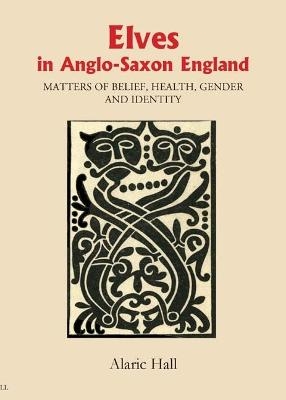
Elves in Anglo-Saxon England
Matters of Belief, Health, Gender and Identity
Seiten
2007
The Boydell Press (Verlag)
978-1-84383-294-2 (ISBN)
The Boydell Press (Verlag)
978-1-84383-294-2 (ISBN)
Elves and elf-belief during the Anglo-Saxon period are reassessed in this lively and provocative study.
Anglo-Saxon elves [Old English ælfe] are one of the best attested non-Christian beliefs in early medieval Europe, but current interpretations of the evidence derive directly from outdated nineteenth- and early twentieth-century scholarship. Integrating linguistic and textual approaches into an anthropologically-inspired framework, this book reassesses the full range of evidence. It traces continuities and changes in medieval non-Christian beliefs with a new degree of reliability, from pre-conversion times to the eleventh century and beyond, and uses comparative material from medieval Ireland and Scandinavia to argue for a dynamic relationship between beliefs and society. Inparticular, it interprets the cultural significance of elves as a cause of illness in medical texts, and provides new insights into the much-discussed Scandinavian magic of seidr. Elf-beliefs, moreover, were connected withAnglo-Saxon constructions of sex and gender; their changing nature provides a rare insight into a fascinating area of early medieval European culture.
Shortlisted for the Katharine Briggs Folklore Award 2007
ALARIC HALL is a fellow of the Helsinki Collegium for Advanced Studies.
Anglo-Saxon elves [Old English ælfe] are one of the best attested non-Christian beliefs in early medieval Europe, but current interpretations of the evidence derive directly from outdated nineteenth- and early twentieth-century scholarship. Integrating linguistic and textual approaches into an anthropologically-inspired framework, this book reassesses the full range of evidence. It traces continuities and changes in medieval non-Christian beliefs with a new degree of reliability, from pre-conversion times to the eleventh century and beyond, and uses comparative material from medieval Ireland and Scandinavia to argue for a dynamic relationship between beliefs and society. Inparticular, it interprets the cultural significance of elves as a cause of illness in medical texts, and provides new insights into the much-discussed Scandinavian magic of seidr. Elf-beliefs, moreover, were connected withAnglo-Saxon constructions of sex and gender; their changing nature provides a rare insight into a fascinating area of early medieval European culture.
Shortlisted for the Katharine Briggs Folklore Award 2007
ALARIC HALL is a fellow of the Helsinki Collegium for Advanced Studies.
Introduction
A Medieval Scandinavian Context
The Earliest Anglo-Saxon Evidence
Female Elves and Beautiful Elves
Ælfe, Illness and Healing (1): the `Elf-shot' Conspiracy
Ælfe, Illness and Healing (2): ælfsiden
Anglo-Saxon Myth and Gender
Believing in Early Medieval History
Appendix 1: The Linguistic History of elf
Appendix 2: Two Non-elves
Works Cited
Index
| Erscheint lt. Verlag | 15.3.2007 |
|---|---|
| Reihe/Serie | Anglo-Saxon Studies |
| Verlagsort | Woodbridge |
| Sprache | englisch |
| Maße | 156 x 234 mm |
| Gewicht | 1 g |
| Themenwelt | Geschichte ► Allgemeine Geschichte ► Mittelalter |
| Geisteswissenschaften ► Geschichte ► Regional- / Ländergeschichte | |
| Geschichte ► Teilgebiete der Geschichte ► Kulturgeschichte | |
| Sozialwissenschaften ► Soziologie | |
| ISBN-10 | 1-84383-294-1 / 1843832941 |
| ISBN-13 | 978-1-84383-294-2 / 9781843832942 |
| Zustand | Neuware |
| Haben Sie eine Frage zum Produkt? |
Mehr entdecken
aus dem Bereich
aus dem Bereich
eine neue Geschichte des Mittelalters
Buch | Hardcover (2023)
C.H.Beck (Verlag)
CHF 53,20


